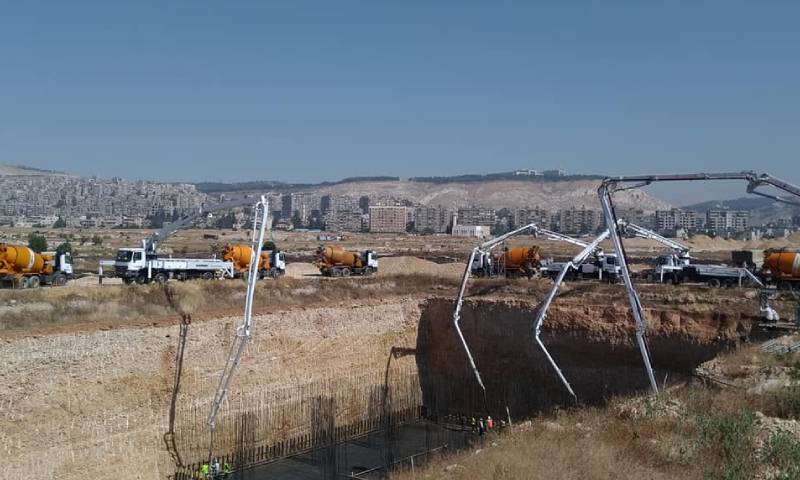



The Council of the European Union (EU) has announced that it lifted economic sanctions against investors in the Marota City project in Damascus, according to a statement issued on Monday, 1 June.
The EU decision, which was reviewed by Enab Baladi, stipulates for the lifting of sanctions on Maen Rizk Allah Haykal, a founding partner of Oxide for Development and Investment Company.
The council also lifted the sanctions on Hayan Mohammad Nazem Qaddour, the director of the Oxide for Development and Investment Company, which formed in cooperation with Damascus Cham Holding Company, the “Developers” company that started investing in the Marota City project.
The decision also included the Developers Private Joint Stock Company, a joint project with 17.7 million USD capital between Damascus Cham Holding Company and Tajawuz for Development and Investment Company, which also has a contributing part in the investments of Marota City project.
According to the EU press release, these figures were lifted from its sanctions list because they have “halted their sanctionable activities”.
Both Qaddour and Haykal have worked over the past months on lifting the sanctions after announcing their exit from the Marota City investment, according to what a well-informed human rights source told Enab Baladi.
The EU has imposed sanctions on economic and political figures, including the Head of the Syrian regime, Bashar al-Assad, and his family members, following the outbreak of the Syrian revolution in 2011. The EU sanctions also included companies that have been working with the regime.
The EU imposed restrictive measures including freezing the assets of the Central Bank of Syria (CBS), and a ban restricting exports to Syria such as technological equipment that might be used for internal repression (monitoring or interception of internet or telephone communications,) as well as a restriction on importing the Syrian oil.
The sanctions provide for freezing the assets of the individuals included in them, preventing access to the EU territories, and banning dealings with the entities and companies mentioned in the sanctions list.
The EU renewed its sanctions on the Syrian regime until June 2021. The list includes 273 persons targeted by an asset freeze and a travel ban, in addition to 70 entities subject to an assets freeze.
The Marota City investment is an urban planning project announced by the Syrian regime’s president, Bashar al-Assad, in 2012, behind the informal settlements of the al-Razi area and the Mezzeh groves.
The project called as “Syria’s Awaited Dream” was launched in 2017 by Damascus province and Damascus Sham Holding Company.
In 2019, Syrian famous investors and businessmen such as Rami Makhlouf, Samer Fawz, and Mazen al-Tarazi, got involved in the project.
Meanwhile, the US Treasury imposed sanctions on 16 entities and figures close to the Syrian regime, most prominent of which was Samer Fawz.
Back then, the US Treasury released a statement saying that al-Assad approved a decision that stipulates to expel citizens from the poorest areas to pave the way for luxurious reconstruction projects that benefit businesspeople affiliated to the regime.
Such projects include the Marota City project in Damascus, of which the businessman Samer Fawz has the biggest share.
if you think the article contain wrong information or you have additional details Send Correction